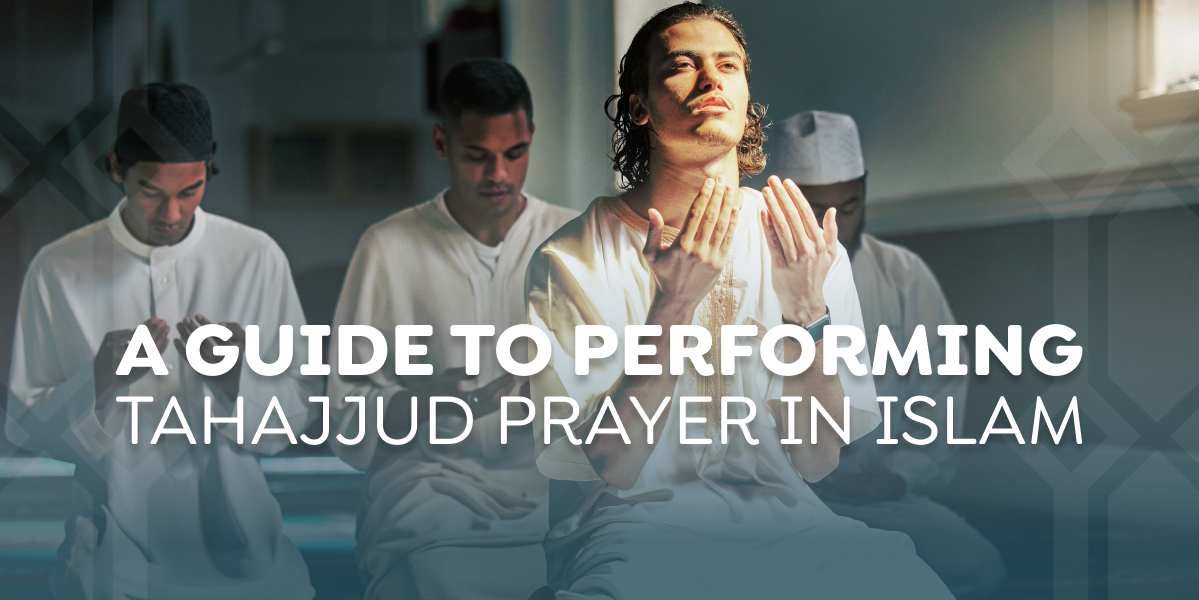“Tahajjud, also known as the Night Vigil or Qiyam-ul-Layl, is a unique and voluntary prayer that holds immense spiritual rewards. It is a time when the world is quiet, and hearts are more receptive to the divine connection. The Prophet Muhammad (peace be upon him) emphasised the virtues of Tahajjud, stating that it draws believers closer to Allah and expiates sins.”
Introduction:
Tahajjud, the voluntary night prayer, holds a special place in Islam as a means of seeking closeness to Allah and attaining spiritual elevation. In this blog, we explore the significance of Tahajjud and provide a step-by-step guide on how to perform this soul-enriching and spiritually uplifting prayer.
- Understanding the Significance of Tahajjud
Tahajjud, also known as the Night Vigil or Qiyam-ul-Layl, is a unique and voluntary prayer that holds immense spiritual rewards. It is a time when the world is quiet, and hearts are more receptive to the divine connection. The Prophet Muhammad (peace be upon him) emphasised the virtues of Tahajjud, stating that it draws believers closer to Allah and expiates sins.
- Choosing the Right Time
Tahajjud is typically performed in the last third of the night, although it can be prayed after the obligatory Isha prayer until the break of dawn. This serene and silent time allows for focused and undisturbed communication with Allah.
- Making Intention (Niyyah)
Before starting Tahajjud, it is essential to make a sincere intention in the heart. Niyyah is the foundation of any act of worship, aligning the prayer with the pure intention of seeking Allah’s pleasure and drawing near to Him.
- Performing Odd Units of Prayer
Tahajjud is usually prayed in even units of two rak’ahs (cycles) each. You can start with two rak’ahs and then continue in sets of two until you decide to conclude your Night Vigil. The more rak’ahs, the greater the spiritual reward.
Would it not be even units – 2 rakat and the always in sets of two – please recheck.
- Reciting from the Quran
During Tahajjud, engage in heartfelt and reflective recitation of the Quran. Choose verses or chapters that resonate with you spiritually. The tranquillity of the night allows for a deep connection with the words of Allah.
- Engaging in Personal Supplications (Dua)
Tahajjud is a time when Allah’s mercy is abundant, making it an opportune moment for personal supplications. Pour out your heart to Allah, seeking guidance, forgiveness, and blessings for yourself, your loved ones, and the entire Ummah.
- Bowing and Prostrating with Humility
Each rak’ah involves bowing (ruku’) and prostrating (sujood) in humble submission to Allah. These physical acts symbolise spiritual humility and reinforce the connection between the worshipper and the Creator.
- Concluding the Prayer with Tashahhud and Tasleem
After completing your desired number of rak’ahs, conclude the prayer with the final tashahhud—a declaration of faith—and the tasleem, signalling the end of the Night Vigil.
Conclusion: Embracing the Spiritual Heights of Tahajjud
Performing Tahajjud is a profound journey of self-discipline, devotion, and spiritual elevation. It is a time when the soul connects intimately with the Divine, seeking mercy, forgiveness, and guidance. By incorporating Tahajjud into our lives, we open the door to spiritual heights that can transform our hearts and bring us closer to Allah. May our nights be filled with the tranquillity of Tahajjud, and may it be a source of spiritual nourishment and growth for all believers. Ameen






